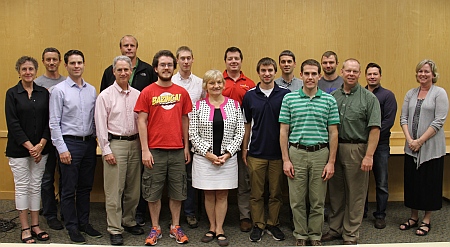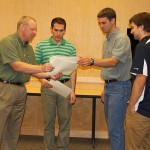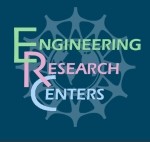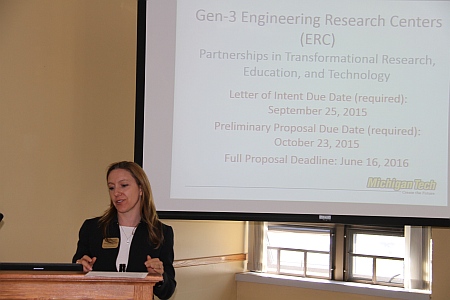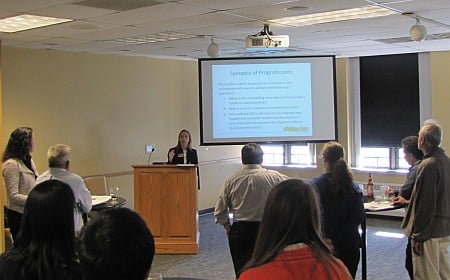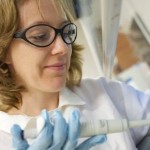The Pavlis Honors College and the Office of Innovation and Industry Engagement held a workshop for faculty, staff and students to consider participating in an Innovation Corps (I-Corps) workshop, offered through the NSF funded I-Corps Sites Program. This workshop offered a valuable opportunity to advance technology-focused business start-up ideas towards commercialization and follow up on funding through SBIR, STTR and private investment. The program is also open to community innovators.
The workshop was conducted in August over a four-week period. Participants also worked on customer discovery. The team-based program structure is similar to the national program that NSF has developed with the help of Silicon Valley entrepreneurs for early-stage technology start-ups. This was a great opportunity for teams to determine and document the commercial potential of their technology through customer discovery using the Business Model Canvas and Lean Start-up technique.
Graduates of this I-Corps Site Program workshop will be better positioned to successfully apply to the National I-Corps program, and graduates of the national program have gone on to achieve higher rates of SBIR/STTR awards than the general population. The program is transformative based on how they approach their research, teaching and other projects they engage in.
The teaching team included Jim Baker, John Diebel and Mary Raber, all of whom have been involved as leaders of technology startups, have participated in the NSF I-Corps training as mentors and who have been trained in the Lean Start-up methodology. Also a team of mentors experienced in the start-up process were available to help navigate the customer discovery process.
